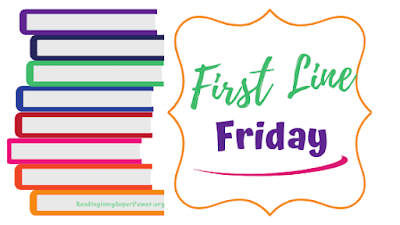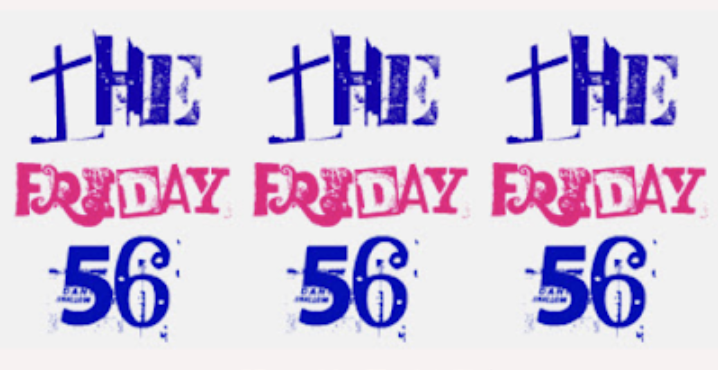Today's Featured Book:
Of Human Bondage
by W. Somerset Maugham
Genre: Fiction
Published: 1915
Page Count: 684 pages
Summary:
Considered by many to be Maugham's masterpiece, "Of Human Bondage" is the semi-autobiographical tale of Philip Carey, who like Maugham, is orphaned and brought up by his uncle. "Of Human Bondage" is a "bildungsroman" that traces the travels of its main character to Germany, Paris and London while exploring the intellectual, emotional and psychological development of the protagonist and later his destructive relationship with the main female character, Mildred Rogers. Originally published in 1915, "Of Human Bondage" is one the great classics of the English language.
The day broke gray and dull. The clouds hung heavily, and there was a rawness in the air that suggested snow. A woman servant came into a room in which a child was sleeping and drew the curtains.
She glanced mechanically at the house opposite, a stucco house with a portico, and went to the child's bed.
"Wake up, Philip," she said.
She pulled down the bed-clothes, took him in her arms, and carried him downstairs. He was only half awake.
"Your mother wants you," she said.
Maugham, W. Somerset (William Somerset). Of Human Bondage (p. 1). Kindle Edition.
THE FRIDAY 56 is hosted by Anne of Head Full of Books. To play, open a book and turn to page 56 (or 56% on your e-reader). Find a sentence or two and post them, along with the book title and author. Then link up on Head Full of Books and visit others in the linky.
But on Monday morning he found on his table a letter from Norah.
She wrote: Dearest, I'm sorry I was cross on Saturday. Forgive me and come to tea in the afternoon as usual. I love you. Your Norah.
His heart sank, and he did not know what to do. He took the note to Griffiths and showed it to him.
"You'd better leave it unanswered," said he.
"Oh, I can't," cried Philip. "I should be miserable if I thought of her waiting and waiting. You don't know what it is to be sick for the postman's knock. I do, and I can't expose anybody else to that torture."
"My dear fellow, one can't break that sort of affair off without somebody suffering. You must just set your teeth to that. One thing is, it doesn't last very long."
Maugham, W. Somerset. Of Human Bondage 56%. Kindle Edition.
Philip Carey is left orphaned after the death of his mother, and he is sent off to live with his aunt and uncle. His childhood is emotionally cold, and he is often bullied about his disability, a clubfoot. Philip tries to make his way in life, and he explores some of the loptions open to him, with schooling, with travels, with the friends he makes. He experiences both the deep joys and deep pains of living in the world, and he attempts to come to an understanding of life, a life philosophy, a way of reconciling the pain.
Who could read this book and not fall in love, at least a bit, with Philip Carey? His goodness is overwhelming, and those to whom he shared his goodness were rarely deserving of it.
Philip's philosophizing is one of the things I enjoyed so much about this book. Philip makes friends with other thoughtful people, Cronshaw among them. It is Cronshaw who offered Philip the metaphor of life as a Persian rug, and it is this metaphor that Philip comes back to again and again, and which somehow brings Philip a sense of happiness:
"Thinking of Cronshaw, Philip remembered the Persian rug which he had given him, telling him that it offered an answer to his question upon the meaning of life; and suddenly the answer occurred to him: he chuckled: now that he had it, it was like one of the puzzles which you worry over till you are shown the solution and then cannot imagine how it could ever have escaped you. The answer was obvious. Life had no meaning. On the earth, satellite of a star speeding through space, living things had arisen under the influence of conditions which were part of the planet's history; and as there had been a beginning of life upon it so, under the influence of other conditions, there would be an end: man, no more significant than other forms of life, had come not as the climax of creation but as a physical reaction to the environment. Philip remembered the story of the Eastern King who, desiring to know the history of man, was brought by a sage five hundred volumes; busy with affairs of state, he bade him go and condense it; in twenty years the sage returned and his history now was in no more than fifty volumes, but the King, too old then to read so many ponderous tomes, bade him go and shorten it once more; twenty years passed again and the sage, old and gray, brought a single book in which was the knowledge the King had sought; but the King lay on his death-bed, and he had no time to read even that; and then the sage gave him the history of man in a single line; it was this: he was born, he suffered, and he died. There was no meaning in life, and man by living served no end. It was immaterial whether he was born or not born, whether he lived or ceased to live. Life was insignificant and death without consequence. Philip exulted, as he had exulted in his boyhood when the weight of a belief in God was lifted from his shoulders: it seemed to him that the last burden of responsibility was taken from him; and for the first time he was utterly free. His insignificance was turned to power, and he felt himself suddenly equal with the cruel fate which had seemed to persecute him; for, if life was meaningless, the world was robbed of its cruelty."
And further:
"His life had seemed horrible when it was measured by its happiness, but now he seemed to gather strength as he realised that it might be measured by something else. Happiness mattered as little as pain. They came in, both of them, as all the other details of his life came in, to the elaboration of the design. He seemed for an instant to stand above the accidents of his existence, and he felt that they could not affect him again as they had done before. Whatever happened to him now would be one more motive to add to the complexity of the pattern, and when the end approached he would rejoice in its completion. It would be a work of art, and it would be none the less beautiful because he alone knew of its existence, and with his death it would at once cease to be. Philip was happy."
Another theme of the book is suffering, and the way suffering gives life meaning:
"But her tears were partly tears of happiness, for she felt that the strangeness between them was gone. She loved him now with a new love because he had made her suffer."
I also enjoyed thinking about the contrast between the ideals the young are taught and the realities of life:
"It is an illusion that youth is happy, an illusion of those who have lost it; but the young know they are wretched, for they are full of the truthless ideals which have been instilled into them, and each time they come in contact with the real they are bruised and wounded."
This is a quote I found to be beautiful:
"He called to mind his idea of the pattern of life: the unhappiness he had suffered was no more than part of a decoration which was elaborate and beautiful; he told himself strenuously that he must accept with gaiety everything, dreariness and excitement, pleasure and pain, because it added to the richness of the design."
The purpose of THE BOOK BLOGGER HOP is to give bloggers a chance to follow other blogs, learn about new books, and befriend other bloggers. THE BOOK BLOGGER HOP is hosted by Ramblings of a Coffee Addicted Writer.
October 25-31. Which scary-themed book is your favorite?
I got this book in my Scholastic Book Order in the 1960s, and it quickly became my favorite collection of scary stories. I think it cost fifty cents back then; I just ordered a used copy for almost eight dollars. Let's see how it holds up.





.png)


No comments:
Post a Comment
I love to hear your thoughts.